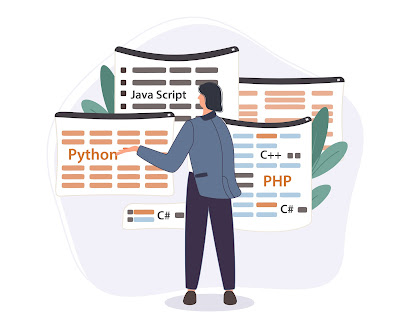What Should I Do After Learning Python?
Congratulations! You've successfully learned Python, a versatile and powerful programming language that has opened doors to a world of possibilities. As you bask in the glory of this achievement, you might be wondering, "What's next?" Fear not, for this blog post is here to guide you through the exciting journey that lies ahead after mastering Python.
1. Build Real-World Projects
One of the best ways to solidify your Python skills is to apply them to real-world projects. Whether it's a web application, data analysis tool, or automation script, hands-on experience is invaluable. Building projects not only reinforces your knowledge but also allows you to showcase your abilities to potential employers or collaborators.
2. Contribute to Open Source
Get involved in the open-source community. Contributing to open-source projects is a fantastic way to collaborate with experienced developers, learn best practices, and enhance your coding skills. GitHub is a treasure trove of open-source projects waiting for enthusiastic contributors. Start small, fix bugs, and gradually take on more significant challenges as you gain confidence.
3. Explore Specialized Libraries and Frameworks
Python has a vast ecosystem of libraries and frameworks tailored for specific purposes. Depending on your interests, Learn Django or Flask for web development, TensorFlow or PyTorch for machine learning, Pandas for data manipulation, and more. Delve into these specialized areas to deepen your expertise and broaden your skill set.
4. Learn a Second Programming Language
While Python is a fantastic language, expanding your horizons by learning another programming language can be immensely beneficial. Consider Courses like JavaScript for web development, Java for mobile app development, or C++ training Course for system-level programming. Each language brings its unique perspective and capabilities, making you a more versatile programmer.
5. Master Version Control
Proficiency in version control systems like Git is a must-have skill for any developer. Learn how to use Git to track changes, collaborate with others, and manage your projects effectively. Platforms like GitHub and GitLab provide a collaborative space for developers to share code, contribute to projects, and showcase their work.
6. Stay Informed
The tech world is dynamic and constantly evolving. Stay informed about the latest developments in the Python community and the broader programming landscape. Follow blogs, participate in forums, and attend meetups or conferences to stay abreast of emerging trends and technologies.
7. Network and Collaborate
Building a strong professional network is crucial in the tech industry. Attend local meetups, join online forums, and connect with fellow Python developers on social media platforms. Collaborate on projects, seek mentorship, and contribute to discussions. Networking not only opens doors to opportunities but also exposes you to different perspectives and approaches.
8. Consider Advanced Topics
Once you've mastered the fundamentals, challenge yourself with more advanced topics. Dive into concepts like Data Structure and algorithms, design patterns, and software architecture. Understanding these principles will make you a more well-rounded and capable developer.
Conclusion
Learning Python is just the beginning of an exciting journey in the world of programming. By building projects, contributing to open source, exploring specialized areas, learning additional languages, mastering version control, staying informed, networking, and delving into advanced topics, you can continue to grow as a developer and unlock new opportunities. Embrace the challenges, stay curious, and enjoy the endless possibilities that await you on this enriching path. Happy coding!
If are you still confused and want help, then contact PR Softwares in Hyderabad we will guide you through each step, or follow the below link to reach us.

Comments
Post a Comment